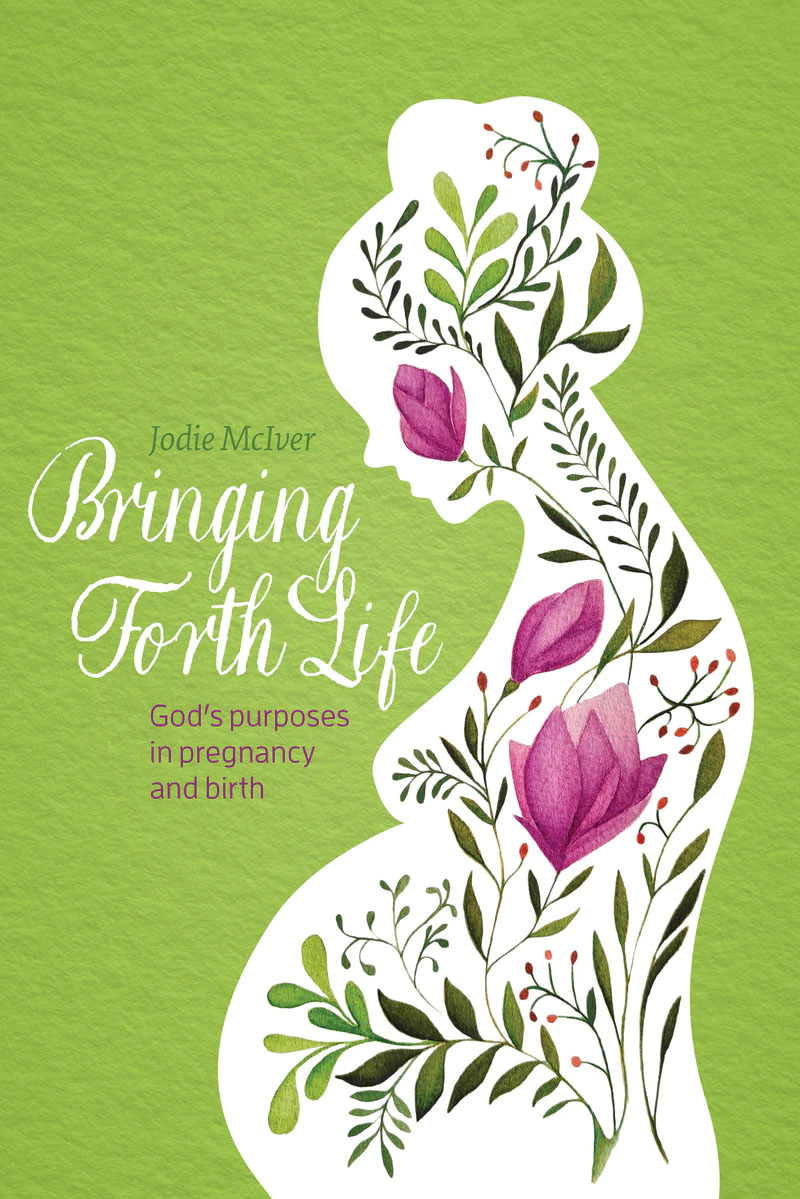
Thinking about vasectomies
A conversation about contraception and fruitfulness.
At Growing Faith, we want to bring together a range of views on topical issues to help our readers think them through. This article is a dialogue between two anonymous contributors, who have different views (+/?) about the value of vasectomies.
+ Children are a blessing! Does that mean we should always try and maximise the opportunity for biological children? My wife and I have found, in the particularities of our situation, that there are some good reasons to think otherwise, for Jesus' sake. Working outwards from that, we have also seen some more general reasons why followers of Jesus might legitimately close off the opportunity for more biological children in order to pursue other ways in which God seeks to bless the world through families.
Early on in our marriage, I had heard of a vasectomy as a potential way for a husband to love his wife by relieving her of the burden of birth control. Unexpectedly for us, my wife's pregnancies were truly debilitating and left her mostly bedridden for the whole nine months (only later did we hear about HG, hyperemesis gravidarum). A vasectomy became, in a much more physical sense than I had thought, a way in which I could love her and also enable her to be there for our children.
? I acknowledge that in certain rare circumstances, pregnancy can be life-threatening or permanently debilitating for women, and in these cases a vasectomy would be an option worthy of consideration. However, I would caution against the need to ‘rescue’ women from the challenges involved in pregnancy and birth. I think it sends the message that women are fragile, and that our struggles in bringing forth life are pointless sufferings that we are best relieved of. I think this ultimately deprives women of a chance to conquer a challenging rite of passage and gain the self-esteem and other internal rewards which come from that. It also points to an unspoken theology of avoiding suffering at all costs. Supporting women through childbearing, with its significant challenges, is in my view a healthier, more ‘pro-woman’ mindset.
I also have qualms about the lightness of the discussion around vasectomy. It is often described as a ‘minor surgical procedure’. However, we have to remember that although the physical ‘snip’ may be small, the meaning of this act is highly significant, and the location highly personal. We should not assume this will have no effect on the male psyche. In addition, although physical side effects are rare, they can be devastating when they do occur. Because of these considerations, I would never promote vasectomy as a way for a husband to ‘love his wife’, just as I would not suggest that a wife ought to interfere with any of her healthy bodily systems to love her husband.
+ Another consideration for us was ministry. We were both serving cross-culturally and God had been drawing attention to new work for my wife. It was for the sake of these other avenues of service that we wanted to limit the time she would spend in the early childhood years of parenting. My vasectomy was therefore a natural step in the unique marriage partnership that God had called us into. We said 'no' to one good thing in order to say 'yes' to others.
? This raises the question of how we determine what ministries God has asked of us or entrusted to us. When God created us in Genesis 1–2, he called us ‘very good’; but we tend to find the harder aspects of this design (childbearing and childraising!) ‘very hard’, and so it is easy to seek out ministries that are easier and come more naturally.
I view caring for young children (for a season) not as a barrier to ministry but as a significant ministry in itself, although a very hard one. While seeking to limit the number of children for the sake of pursuing other ministry can be valid, additional children should never be seen as a hindrance to ministry, such that we must turn to permanent surgical birth control to prevent their appearance.
Moreover, throughout Christian history, many women have found that they could take part in other worthwhile ministries with small children in tow. Again, this is greatly helped by an intergenerational community or ‘village’ surrounding mothers in particular.
+ A further consideration was our desire to care well for our children. As Third Culture Kids, they grow up with unique opportunities, challenges and needs. In the higher-stress environment of cross-cultural ministry, we wanted to remain fully attentive to them as growing people. A vasectomy was part of counting the cost of ministry, so that we might continue to serve joyfully without burning ourselves out and overly affecting them in the process.
? Again, I would suggest that while seeking to limit the number of children for reasons like this may be valid, we need to be careful not to fall into a ‘scarcity’ mindset, disbelieving that God could resource us (or our existing children) should another pregnancy occur.
+ So far I've referred to ways in which we sought to cultivate the environment of our nuclear family, but we also look beyond that to how we cultivate relationships in God's world, including the rest of the planet. Let me bring just one angle on this. In 1 Corinthians 7, Paul considers how to live in light of a coming crisis when the world seems to be at a tipping point. We may see a similar situation today as we hear about ecological crisis. Paul does not seem worried about the course of history, but he wants the people of God to stay focused on God and ready to serve God, and this may lead people to hit pause on expected relationships or paths in life (although Paul is at pains not to create any extra rules and burdens for anyone). In our time, to limit our biological family size may be a similar outworking of this.
? We have presented a range of views on this question in our article ‘Should we limit our family size for the sake of the planet?’.
+ The above considerations might seem somewhat pragmatic, but there is a rich theological reason to consider limiting our biological family size. It is that, in light of the new creation, God calls us to go beyond the nuclear family. When for example Jesus calls his disciples his 'mother and brothers', he is calling for a new standard of family. Fostering, adoption, cohousing, additional forms of women's work—these can be God-given avenues of family and hospitality beyond the nuclear family. My wife and I saw Christians pursuing things like this in another culture and it expanded our idea of what God might have in mind for Aussie Christians. In this sense, a vasectomy would be not a shutting down of hospitality but greater openness to it.
Of course, a vasectomy is pretty much permanent, but that doesn't seem like such a big deal in light of the glory of new creation. Why shouldn't I give up myself—my body—for that? Of course there is no compulsion here. As Paul says, it doesn't matter whether or not you're circumcised; keeping God's commands is what counts. Yet in Christian freedom, this can be an expression of life in Christ.
? In 1 Corinthians 7, Paul talks about the time being short, and therefore he renounces (and encourages others to consider renouncing) a God-given creational good (marriage) in order to prioritise ministry and devotion to God. There are parallels we can potentially draw with limiting the conception of children.
However, the method for prioritising ministry and devotion to God in 1 Corinthians 7 is abstaining from sex either in total (remaining unmarried) or for a time (by agreement, within a marriage). Neither natural nor surgical/hormonal forms of contraception were available then, so the passage doesn’t speak directly to that. But we can say that a purposeful, spiritual abstaining from marriage and sex (and therefore children)—within certain limits—are allowable within the kingdom.
But in general, we need to remember that sex is designed to be inherently procreative (regardless of whether a specific sex act is procreative or not), and therefore married couples should be open to the fruitfulness of their relationship. I think that vasectomies are a fairly dramatic statement that a couple are not open to fruitfulness, in a way that other (non-permanent, non-surgical) contraceptives aren’t. It’s important to recognise that divorcing sex from procreation (or the potential of procreation) fundamentally alters the make-up of sex. What is it doing to our sexual experiences (and to our marriages) if we permanently divorce sex from its God-given potential to produce offspring? What is it doing to our husbands’ sexuality if we purposefully sterilise them? These questions are not discussed often enough.
Another question that needs to be considered is: ‘What kind of person does this make me?’ Are we becoming people who want full control over our fertility—something which has never been humanly possible until recent times? Are we becoming people who want to avoid suffering at all costs? Are we becoming people who don’t trust in God to provide what we need? Are we becoming people who cannot see ‘surprise’ children as gifts and blessings?
In the end, I don’t see vasectomies as inherently sinful or always the wrong decision. But I believe we need to slow down and think carefully about questions like these, before rushing to embrace this option.
+ I absolutely agree that we are called to fruitfulness. Yet for us as new creation people, fruitfulness can no longer be limited to a biological meaning. Our sexual experiences are a sign of greater realities, and in a similar way, our biological families are not God's end goal but point to it. A man who has a vasectomy—for Jesus—has the potential to be very much in tune with that.
Further reading:
'When permanent contraception can be licit', Mere Orthodoxy.
---
Many thanks to the contributors who shared their thoughts on this important but sensitive topic.

Bringing Forth Life
Pregnancy and birth bring a whirlwind of change to a woman’s body, identity, life and relationships. This is a huge transition, filled with excitement, uncertainty and anxiety.
For more articles from Growing Faith, subscribe to our monthly e-newsletter.
To hear about the latest books and resources from Youthworks Media, subscribe here.








